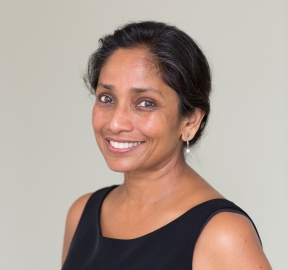News
Anxiety Awareness by Dr Saroja Gunasekera
August 6, 2021
Anxiety is the most common mental health condition in Australia. Up to one-third of women and one-fifth of men will experience anxiety at some point in their lives and it can be diagnosed in children too.
Feeling anxious is one way for our bodies keep us safe from danger. Common responses are fight, flight or freeze. When people are very anxious, they have intense feelings of worry/distress that are difficult to control. Anxiety can interfere with your everyday life and make it hard to cope with ‘normal’ challenges.
We’ve all experienced anxiety in particular situations, but when responses become persistent, and impact on daily life, it may be an anxiety disorder.
Risk factors for anxiety include:
- personality type, genetics and brain chemistry
- medical conditions and side-effects of medications
- substance use/abuse
- ongoing stress or trauma
- pregnancy & childbirth
- other mental health illnesses like depression.
Factors that may protect you from developing anxiety are your level of social support, coping style and previous life experiences.
Types of anxiety disorders
There are many types of anxiety disorder including:
- generalised anxiety
- social anxiety
- separation anxiety
- phobias
- and panic disorder.
Common symptoms include:
- feeling worried or afraid most of the time
- feeling tense, nervous, panicky or scared
- feeling irritable or agitated
- feeling detached from your body
- churning stomach or nausea
- sleep problems
- sweating
- light-headedness, dizziness, pounding/racing heart
- twitches or trembling
- problems concentrating
- excessive thirst.

When people are very anxious, they may think:
- ‘Everything’s going to go wrong’
- ‘I can’t handle how I feel’
- ‘I can’t focus on anything but worries’
- ‘I don’t want to go out’
- ‘I can’t calm myself down’
- ‘I might die’.
Obsessive Compulsive Disorder (OCD) is a condition where people have ongoing unwanted/intrusive thoughts/fears that cause severe anxiety. This may be a thought about self-contamination or poisoning. To relieve their anxiety, they engage in certain behaviours/rituals such as cleaning, ordering, counting, hoarding and/or repeated safety checking. When these repetitive thoughts and behaviours take over, people can feel overwhelmed or exhausted, lose sleep, and avoid work and social situations.
If you are experiencing the symptoms of anxiety or OCD, you should book in to see your GP. Your GP will help diagnose the type of anxiety disorder, and, if necessary, refer you to a psychologist. There are a variety of psychological interventions and medications available that are effective in treating anxiety. These will help you to manage your symptoms and get back to living the life you want.
“Our anxiety does not come from thinking about the future, but from attempting to control it.” Kahlil Gibran.

